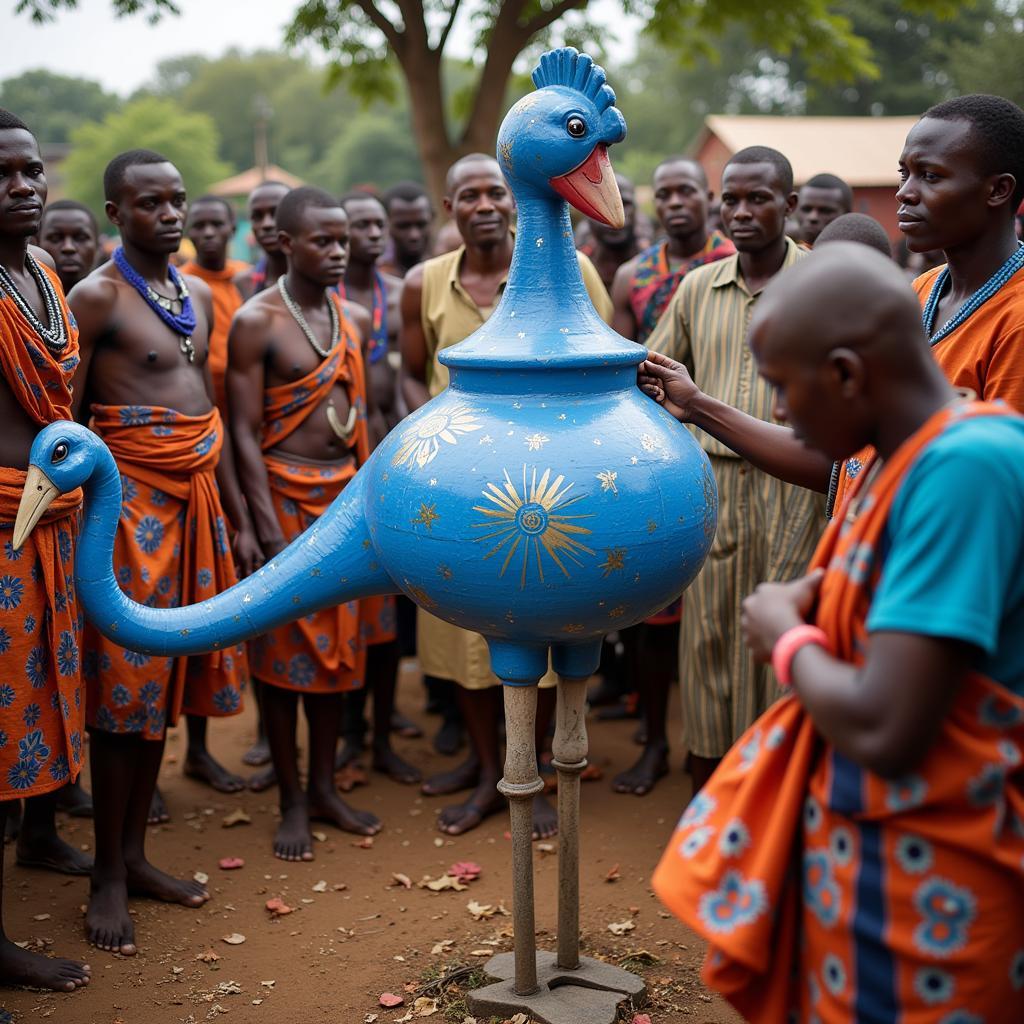Unveiling the Secrets: Becoming an African Animal Detective
The captivating world of African wildlife holds countless mysteries. Becoming an “African Animal Detective” requires a keen eye, patience, and a deep understanding of the bush. This article will delve into the fascinating world of tracking and interpreting animal signs, offering insights into the skills needed to unravel the secrets of the African wilderness.
Decoding the Whispers of the Wild: The Art of Tracking
Tracking animals in Africa is more than just following footprints; it’s about reading the subtle language of the bush. From broken twigs and overturned stones to scat and scent markings, every clue tells a story. A skilled African animal detective can identify the species, age, sex, and even the mood of an animal by carefully observing these signs.
Spoor: Following the Footprints of Giants
Spoor, the term used for animal tracks, is perhaps the most recognizable sign. The size, shape, and depth of the print can reveal a wealth of information. For example, the wide, round prints of an elephant differ vastly from the delicate, pointed tracks of a gazelle. Even similar species can be distinguished; the spoor of a lion, for instance, will lack claw marks, while those of a leopard will be present.
Understanding gait patterns, the way an animal walks, is another crucial element of spoor interpretation. The spacing between prints can indicate whether the animal was walking, trotting, or running, offering insights into its behavior.
Beyond Footprints: Unveiling the Hidden Clues
While spoor is a fundamental aspect of tracking, an African animal detective must consider a wider array of signs. Scat analysis can provide valuable information about an animal’s diet and health. Scent marking, often in the form of urine or territorial scratching, reveals much about an animal’s social structure and movements. Broken branches, disturbed vegetation, and even the presence of certain insects can all contribute to the bigger picture.
The Role of the Senses: Sharpening Your Detective Skills
Becoming an effective African animal detective requires honing your senses. Developing a keen sense of observation is paramount. Learning to distinguish between the myriad sounds of the bush, from the rustle of leaves to the distant call of a bird, can alert you to the presence of animals. Even the slightest change in the environment, a subtle shift in the wind or a sudden silence, can hold valuable clues. Are you ready to embark on this exciting adventure? Explore the African jungle further with our recommended funny movie: african jungle funny movie.
Dr. Ayana Makena, a renowned wildlife biologist, emphasizes the importance of patience: “Tracking is not a race; it’s a slow, deliberate process of observation and deduction. The bush whispers its secrets to those who listen carefully.”
Professor Jabari Oluoch, a leading expert in animal behavior, adds: “Every sign, however small, tells a story. It’s the detective’s job to piece those stories together to create a complete picture of the animal’s life.”
Conclusion: Embracing the Challenge of the African Animal Detective
Becoming an African animal detective is a journey of continuous learning and discovery. It requires patience, dedication, and a deep respect for the natural world. By mastering the art of tracking and interpreting animal signs, you can unlock the mysteries of the African wilderness and gain a deeper understanding of its remarkable inhabitants. Remember, the secrets of the bush are waiting to be revealed, so embark on this adventure and embrace the challenge of the African animal detective. Learn more about African folklore through the works of children’s writers: african childrens writers who use folklore.
FAQ
- What is spoor?
- How can I tell the difference between lion and leopard tracks?
- What other signs can I use to track animals besides footprints?
- What is the importance of scent marking in animal tracking?
- How can I improve my tracking skills?
- What is the significance of gait patterns in tracking?
- What resources are available for learning more about African animal tracking?
If you’re looking for some lighthearted entertainment about African elephants, check out this joke: african elephant joke. Or if you’re into puzzles, try this crossword clue: african country crossword clue 8 letters.
When you need support, please contact us at Phone Number: +255768904061, Email: kaka.mag@gmail.com or visit us at: Mbarali DC Mawindi, Kangaga, Tanzania. We have a 24/7 customer service team.


